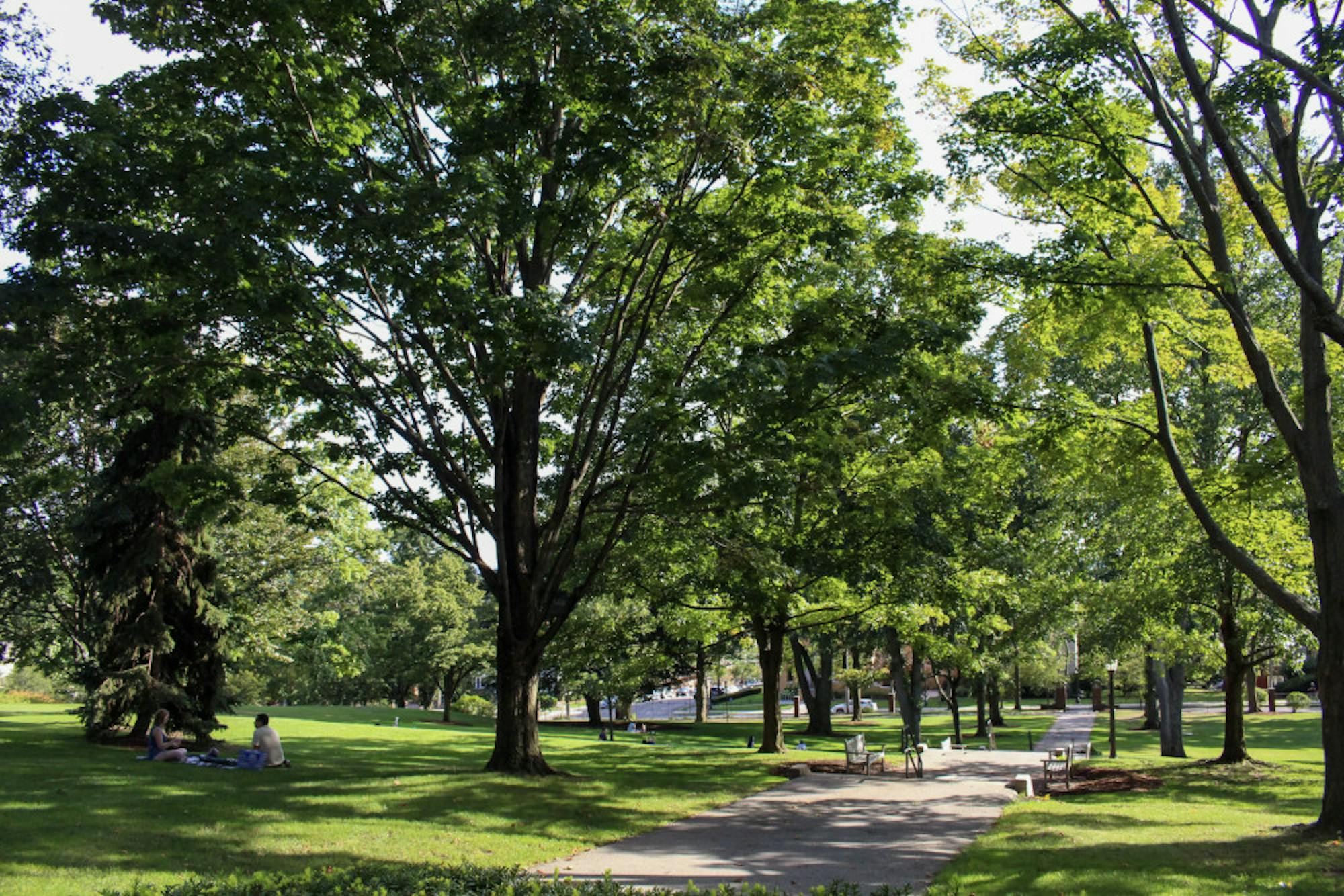University officials have convened a Diversity, Equity and Inclusion Strategic Planning ad hoc committee this fall to identify solutions and action items necessary for Tufts to become an anti-racist institution.
The committee is informed by the university’s 2013 Council on DiversityReportand seeks to address calls for change that have come directly from the Tufts community.
The committee is composed of faculty, staff and students and is chaired by Bárbara Brizuela, dean of academic affairs for the School of Arts and Sciences, Nandi Bynoe, associate dean of diversity and inclusion and Jacqueline Dejean, assistant dean of research and assistant dean for diversity and inclusion.
Brizuela, Bynoe and Dejean explained that the ad hoc committee is organized into three subcommittees, with corresponding areas of focus on faculty and staff, admission recruitment and retention and curriculum reform.
“Each of the subcommittees is designing solutions that address challenges identified in previous reports, as well as current challenges locally and nationwide in terms of racism and equity,”Brizuela, Bynoe and Dejean collectively wrote in an email to the Daily on behalf of the committee.
They shared the urgency of the committee's work in response to the current national dialogue and wave of calls for racial justice.
“Clearly the events of the last several months have caused us all to look long and hard at the issue of systemic racism and our role in confronting it,”Brizuela, Bynoe and Dejean said.“The committee, the school and the university are committed to ensuring that Tufts is an anti-racist institution, and we believe the committee’s recommendations will play an important part in moving us closer to that goal.”
Previous diversity, equity and inclusion efforts by the university include thereorganization of the six identity-based centers under the Division of Student Diversity and Inclusion, the founding of new academic programs and departments and thecreation of the role of associate dean of diversity and inclusion.
Dean of Admissions and committee member JT Duck affirmed Tufts' commitment to continuing to attract a diverse student body, as well as ensuring that the admission process is holistic, contextual and not discriminatory.
Duck outlined measures the Office of Undergraduate Admissions is implementing to reach a more diverse applicant pool.
"We also are already taking concrete steps," Duck wrote in an email to the Daily. "Such as expanding our outreach with high schools that serve large numbers of Black or Indigenous students and building greater awareness of our Voices of Tufts Diversity Experiences program."
The committee also hopes to address curriculum planning and is working on a proposal to update the School of Arts and Sciences curriculum to be centered on equity and inclusion, according to Brizuela, Bynoe and Dejean.
Professor and Director of the Graduate Program of Psychology Ayanna Thomas, who serves as a faculty member on the committee, highlighted the importance of creating a supportive community at Tufts for conversations on diversity and inclusion.
“Thinking about equity, diversity and inclusion should be inherent to all aspects of our university life, that it should be part of all the different courses that we take,” Thomas said. “We should create an atmosphere in the classroom and on campus that allows for us to share these different kinds of ideas in an environment that is open and welcoming to it.”
Thomas believes that research should be more representative of diverse populations.
“Most of psychological research has been conducted with a convenient sample of college students, mostly from the United States," Thomas said. "[That] limits broadly the conclusions that we can think of and draw with regard to human behavior, generally.”
Thomas sees the inclusion of underrepresented perspectives as a critical factor in education.
“Thinking about research that's coming from non-traditional channels, so thinking about research that’s coming out of Southeast Asia, and parts of Africa and parts of South America had not necessarily been given a voice in our tradition,” she said.
To include additional perspectives in its work, the committee welcomed input from students in a Sept. 21 email to the Tufts community. It gave students the opportunity to share their thoughts through email, an online survey or one-on-one meetings with committee members.
The committee’s work and findings are still in development and will culminate into a Strategic Plan for the School of Arts and Sciences, which will serve as a roadmap to inform future decision-making.
“We have been meeting regularly and are making good progress within our subcommittees,” Brizuela, Bynoe and Dejean said.“It’s premature at the moment to discuss potential solutions publicly because the committee is still deliberating, but we’ll be eager to communicate our findings at the appropriate time.”






